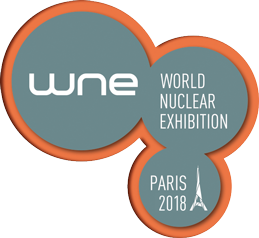The World Nuclear Exhibition has just ended in Paris, France. There were over nine thousand attendees for around the world and six hundred and eighty exhibitors. The Exhibition is held every two years and is dedicated to vendors and discussions of nuclear safety and the global nuclear supply chain. Three topics of interest at the Exhibition were equipment qualification; counterfeit, fraudulent, and suspect items (CFSI) and localizing the nuclear supply change.
It is difficult for a manufacturer to introduce a new component into the nuclear supply chain because of the complexity and variety in the global regulatory environment. It is a risk for customers in the reactor business to try out new technologies because the nuclear industry is a small part of energy technology and there is a lack of international standards with which to evaluate a piece of equipment. Both of these problems need to address by cooperation among all the major stakeholders in the nuclear industry.
With respect to CFSI, the focus has tended to be detecting fraud by monitoring processes. Lately, there have been more fraudulent items showing up in the global nuclear supply chain. The focus on detection is reactive. Processes are changed after fraud is detected. Recently there has been a call for changing the focus to corporate culture and prevention as the first line of defense against CFSI.
It is difficult if not impossible for a reactor under construction or in need of spare parts to obtain those parts in country. Quite often, these components have to be ordered from other countries. The company working on the reactor has to examine the arriving parts to see if they are authentic. This means that it is important that the parts be ordered from factories with sterling reputations and a commitment to nuclear safety. There is a call to invest in a culture of responsibility and quality in the global nuclear supply chain.
One major problem for the global nuclear industry is the fact that each country or association has its own set of rules and regulations with respect to nuclear reactors and nuclear materials. Sometimes, regulations can be so ambiguous that sincere vendors are not sure how to comply with them. On the other hand, they may violate some rule without even knowing it.
When components are ordered from other countries, it can be difficult to satisfy the requirements of all the different countries that the component may pass through. Manufacturers and licenses really wish that this would change. Some agency with familiarity with the whole global system should move toward global standards. Local suppliers should take the lead in satisfying local rules and regulations. Working with global groups, local suppliers could find new markets.
With the increasing pressure to build nuclear reactors to combat climate change and the marketing push by Russia and China, it is very important for the global nuclear supply chain to pull itself together and provide a culture where the problems detailed above can be solved and implemented.
